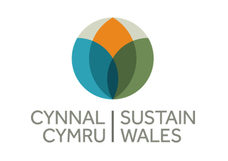
As global environmental issues like water scarcity, deforestation, and biodiversity loss increase, businesses of all sizes need to play a pivotal role in nature recovery.
At Cynnal Cymru – Sustain Wales, we are committed to fostering a low-carbon economy and a naturally thriving environment. We provide essential training in eco-literacy, which serves as an entry point for understanding the connections between nature and our daily operations.
One of the most pressing issues is water management. Across the globe, regions are facing acute water shortages, a situation exacerbated by climate change. Businesses must assess their water use meticulously and adopt stringent conservation strategies. Industries such as agriculture contribute significantly to water pollution through runoffs, which demands a re-evaluation of practices to safeguard our water resources.
When it comes to land use the expansion of areas for timber production, livestock grazing and crop cultivation like soybeans and palm oil has a significant adverse effect on our ecosystems. It's imperative for businesses that utilise or interact with land to consider sustainable practices that support biodiversity.
And that doesn’t stop at businesses with large amounts of agricultural land. Even if a business in a totally different sector has only a small patch of land it can still play its part. It could integrate pollinator-friendly plants such a lavender or native wildflowers, and it could designate some space as ‘wild’, allowing grass to grow longer. This will create habitats for nature.
Even service-based businesses can do their bit. For instance, service firms such as consultancies or legal practices can organise workshops on biodiversity and participate in local environmental projects. Such initiatives not only enhance team cohesion and wellbeing but also raise awareness of the ecological impacts of business activities.
Implementing robust policies on biodiversity is crucial. Businesses should develop clear guidelines that define their commitment to environmental stewardship and set expectations for their suppliers. Engaging suppliers through discussions about their practices can foster a collaborative approach to nature conservation.
A coffee shop, for example, can’t exist without coffee beans. They have to come from somewhere, and they're usually grown in nature on a plantation. And if those plantations are depleted then you've got nothing to sell, and you effectively have no business. So talk to your coffee bean supplier to ensure the supply chain is robust when it comes to preserving nature.
Whether you operate in fashion, hospitality, or any other sector, embracing a strategy that prioritises nature recovery is essential. It not only safeguards the resources essential for your business operations but also aligns your brand with the growing global demand for responsible and sustainable business practices. We must remember that every action counts in the collective effort to restore and protect our planet.
Useful resources:
https://cynnalcymru.com/new-sustainability-guides-for-smes/





